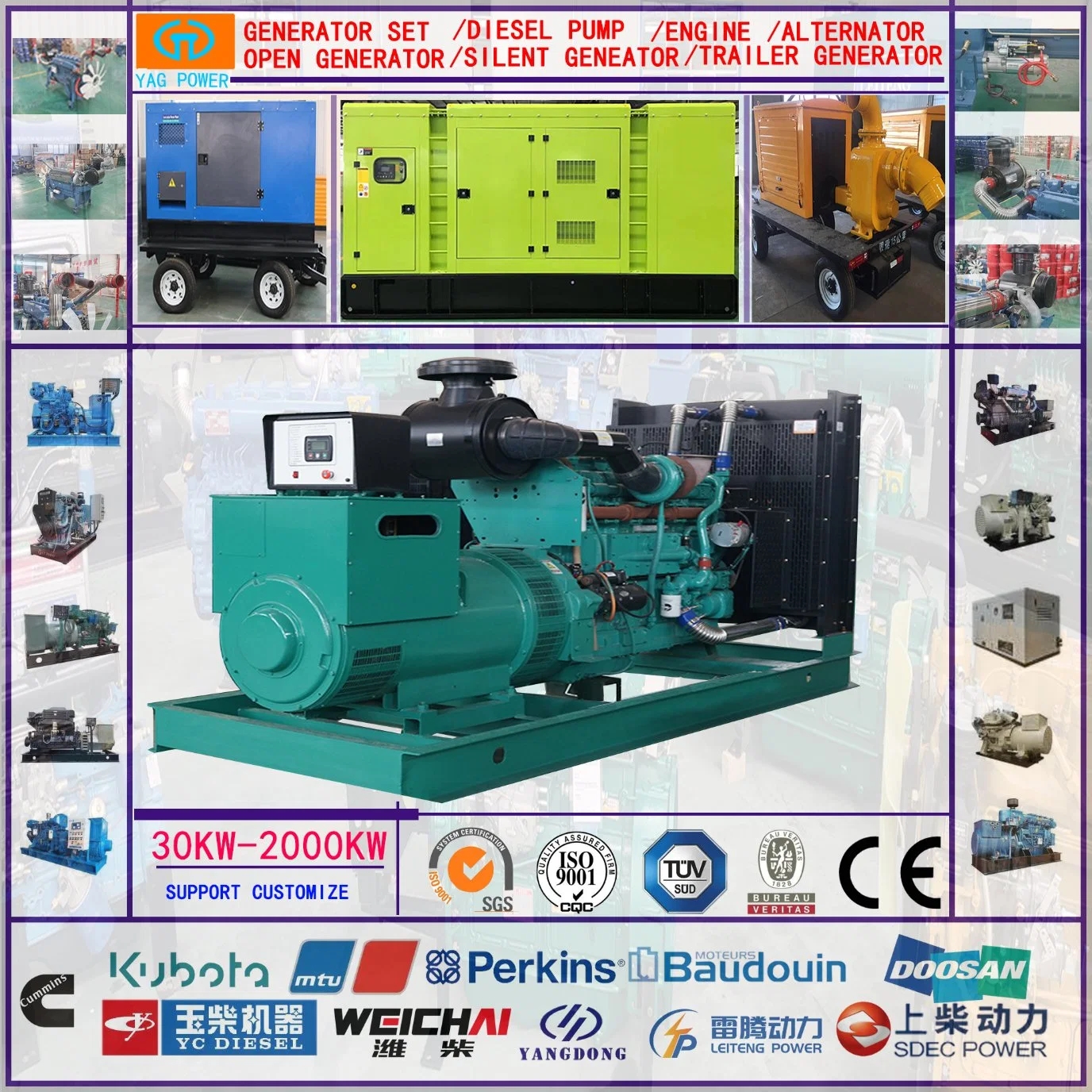diesel generator efficiency
In today's modern world, the demand for electricity continues to grow exponentially. Industries, businesses, and households rely heavily on a stable and uninterrupted power supply to carry out their day-to-day operations. Power factor control is a critical aspect of managing electrical systems efficiently and effectively. Diesel generators play a vital role in enhancing power factor control, especially in situations where the grid power supply may be unreliable or insufficient. This article will explore the significance of power factor control, the role of diesel generators in achieving it, and the benefits of incorporating diesel generators for power factor correction.
Understanding Power Factor Control

Power factor is a crucial parameter in determining the efficiency and quality of an electrical system. It is the ratio of real power (kW) to apparent power (kVA) in an electrical circuit. A power factor of 1 indicates that all the power drawn from the source is being utilized effectively for useful work. In contrast, a power factor less than 1 signifies that a portion of the power is being wasted, leading to inefficiencies in the system.
Power factor control is essential for various reasons:
1. Efficiency: A high power factor ensures that electrical systems operate efficiently, minimizing power losses and reducing energy consumption.
2. Voltage regulation: Power factor correction helps in stabilizing voltage levels, preventing fluctuations and ensuring the smooth operation of electrical equipment.
3. Cost savings: Improved power factor results in reduced electricity bills due to lower losses and improved energy efficiency.
4. Compliance: Many utility companies impose penalties on consumers with poor power factor levels, making power factor correction crucial for regulatory compliance.
Role of Diesel Generators in Power Factor Control
Diesel generators are versatile and reliable sources of backup power that play a significant role in maintaining power supply continuity during grid outages or fluctuations. In addition to their primary function of generating electricity, diesel generators can also contribute to power factor correction in electrical systems. Here are some ways in which diesel generators help in power factor control:
1. Reactive power support: Diesel generators can supply reactive power to compensate for the lagging power factor in electrical systems. By injecting reactive power into the system, diesel generators help in balancing the overall power factor and improving system efficiency.
2. Load balancing: In scenarios where the load profile of an electrical system results in poor power factor levels, diesel generators can be used to balance the load and improve the overall power factor. By strategically deploying diesel generators, operators can ensure optimal power factor control.
3. Voltage support: Diesel generators can provide voltage support during transient voltage dips or fluctuations, helping in stabilizing the electrical system and maintaining a consistent power factor.
Benefits of Using Diesel Generators for Power Factor Correction
Incorporating diesel generators for power factor correction offers several advantages to industries, businesses, and utility providers. Some of the key benefits include:
1. Improved system efficiency: By leveraging diesel generators for power factor correction, electrical systems can operate at higher efficiency levels, reducing energy losses and enhancing overall system performance.
2. Enhanced reliability: Diesel generators provide a reliable backup power source for critical applications, ensuring uninterrupted power supply even during grid failures. By integrating power factor correction capabilities, diesel generators further enhance the reliability of the electrical system.
3. Cost-effective solution: Diesel generators offer a cost-effective means of improving power factor control compared to other methods such as installing static capacitors or synchronous condensers. The versatility of diesel generators makes them a practical choice for power factor correction in various applications.
4. Flexibility and scalability: Diesel generators can be easily integrated into existing electrical systems to address specific power factor issues. They offer flexibility in operation and can be scaled up or down based on the changing power requirements of the system.
5. Regulatory compliance: Diesel generators help in meeting power factor requirements set by utility companies and regulatory bodies, ensuring compliance with industry standards and avoiding penalties associated with poor power factor levels.
Case Study: Diesel Generator Application for Power Factor Control
To illustrate the practical implementation of diesel generators for power factor correction, let's consider a case study of a manufacturing plant facing power quality issues due to poor power factor levels. The plant operates a range of electrical equipment, including motors, pumps, and lighting systems, leading to a fluctuating load profile and reduced power factor. To address this issue, the plant decides to integrate diesel generators for power factor control.
The diesel generators are synchronized with the main electrical system to provide reactive power support and improve the power factor. By strategically operating the diesel generators during peak load periods, the plant manages to balance the load and maintain a stable power factor throughout the day. The generators also offer voltage support during voltage fluctuations, ensuring the smooth operation of critical equipment.
As a result of incorporating diesel generators for power factor correction, the manufacturing plant experiences the following benefits:
- Reduced energy losses and improved system efficiency
- Enhanced reliability of the electrical system with backup power support
- Cost savings through optimized power factor control
- Compliance with power quality standards and regulations
Conclusion
Power factor control is a critical aspect of managing electrical systems efficiently and effectively. Diesel generators play a vital role in enhancing power factor control, offering a reliable and cost-effective solution for improving power factor levels in electrical systems. By leveraging the capabilities of diesel generators for reactive power support, load balancing, and voltage stabilization, operators can optimize power factor control and enhance the overall performance of their electrical systems. Incorporating diesel generators for power factor correction not only ensures regulatory compliance but also brings about tangible benefits in terms of system efficiency, reliability, and cost savings. As industries and businesses continue to prioritize power quality and efficiency, the role of diesel generators in power factor control remains indispensable in ensuring a stable and resilient power supply.
